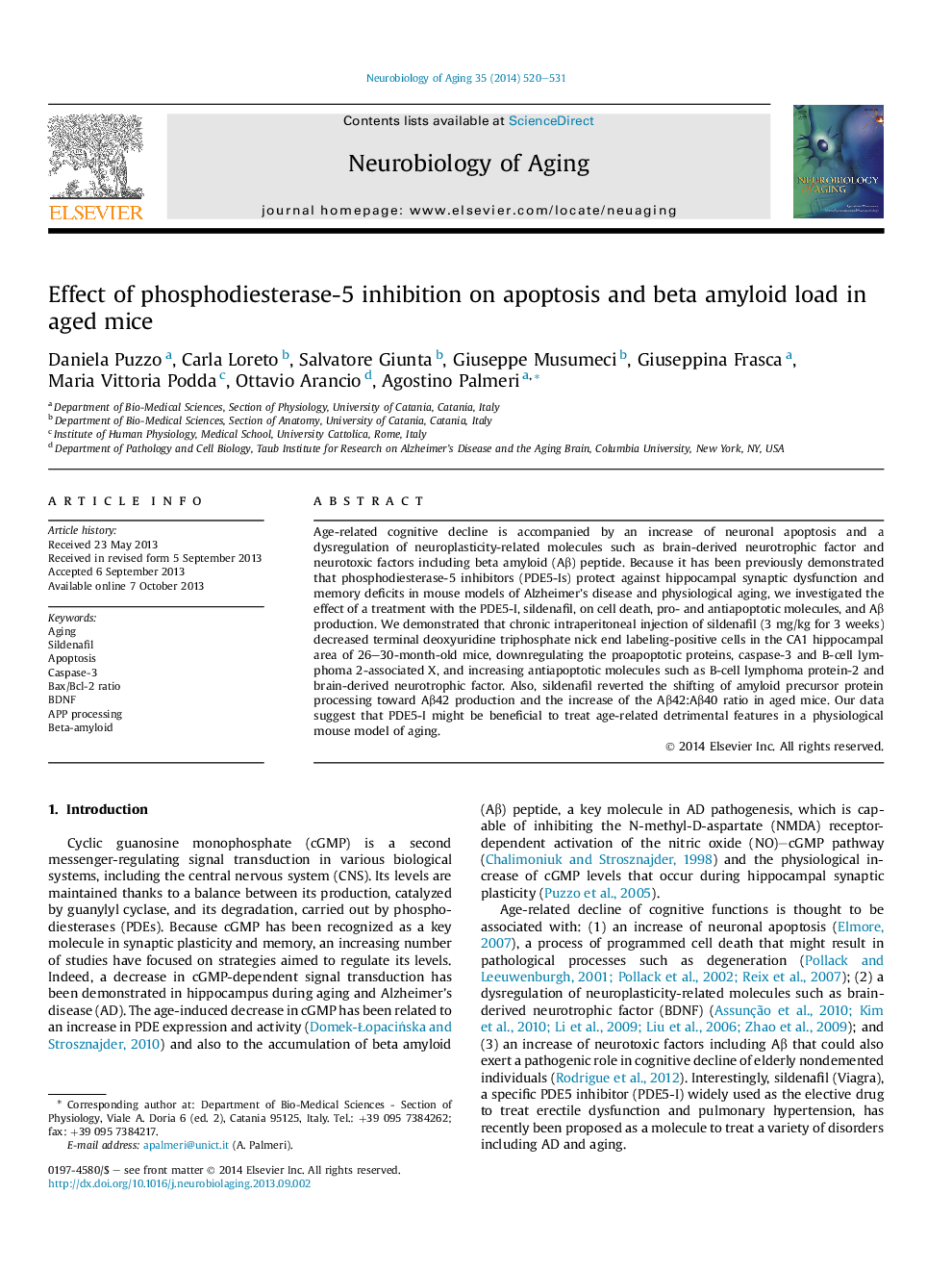| Article ID | Journal | Published Year | Pages | File Type |
|---|---|---|---|---|
| 6806207 | Neurobiology of Aging | 2014 | 12 Pages |
Abstract
Age-related cognitive decline is accompanied by an increase of neuronal apoptosis and a dysregulation of neuroplasticity-related molecules such as brain-derived neurotrophic factor and neurotoxic factors including beta amyloid (Aβ) peptide. Because it has been previously demonstrated that phosphodiesterase-5 inhibitors (PDE5-Is) protect against hippocampal synaptic dysfunction and memory deficits in mouse models of Alzheimer's disease and physiological aging, we investigated the effect of a treatment with the PDE5-I, sildenafil, on cell death, pro- and antiapoptotic molecules, and Aβ production. We demonstrated that chronic intraperitoneal injection of sildenafil (3 mg/kg for 3 weeks) decreased terminal deoxyuridine triphosphate nick end labeling-positive cells in the CA1 hippocampal area of 26-30-month-old mice, downregulating the proapoptotic proteins, caspase-3 and B-cell lymphoma 2-associated X, and increasing antiapoptotic molecules such as B-cell lymphoma protein-2 and brain-derived neurotrophic factor. Also, sildenafil reverted the shifting of amyloid precursor protein processing toward Aβ42 production and the increase of the Aβ42:Aβ40 ratio in aged mice. Our data suggest that PDE5-I might be beneficial to treat age-related detrimental features in a physiological mouse model of aging.
Related Topics
Life Sciences
Biochemistry, Genetics and Molecular Biology
Ageing
Authors
Daniela Puzzo, Carla Loreto, Salvatore Giunta, Giuseppe Musumeci, Giuseppina Frasca, Maria Vittoria Podda, Ottavio Arancio, Agostino Palmeri,
